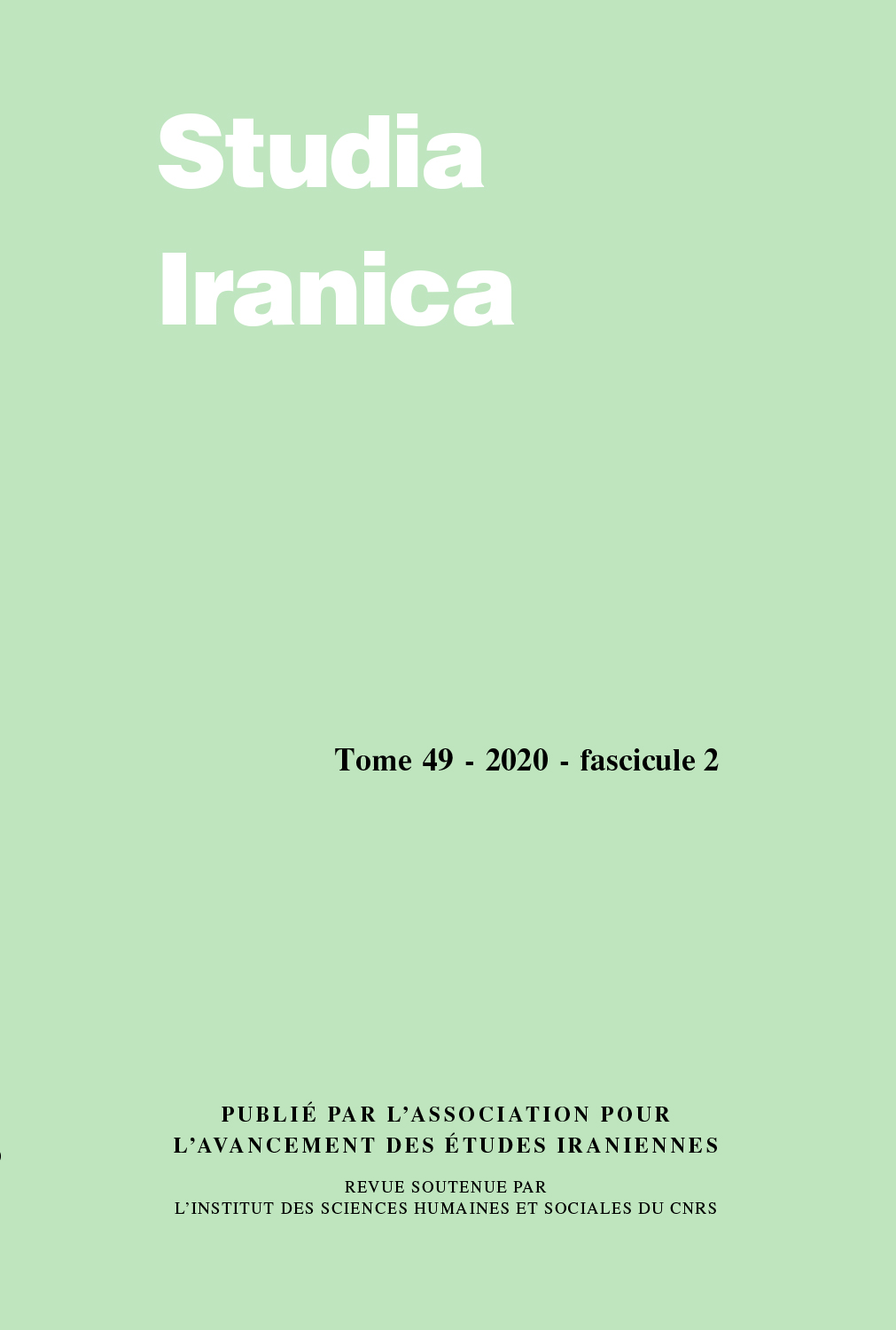 previous article in this issue previous article in this issue | next article in this issue  |

Preview first page |
Document Details : Title: The Third Person Singular Pronominal Clitic in Balochi of Sistan Subtitle: A Progress Report Author(s): BARJASTEH DELFOROOZ, Behrooz , LEVINSOHN, Stephen H. Journal: Studia Iranica Volume: 43 Issue: 2 Date: 2014 Pages: 203-220 DOI: 10.2143/SI.43.2.3071284 Abstract : This paper begins by discussing the distribution of the two allomorphs of the third person singular pronominal clitic in Balochi of Sistan. It finds the conditioning to be mostly, but not exclusively phonological. When =ī is attached to the final verb of an independent clause, the referent is the subject/agent but, when =ē occurs, it is the undergoer (with a few exceptions due to dialectal variation). It follows that, when the subject is stated but =ī is also present, =ī still refers to the subject and gives it thematic prominence. The second part of the paper argues that the presence of the pronominal clitic with the past form of the verb ‘say’ (gušt=ī) communicates 'referent continuity' (Givón 1990); in particular, the ongoing involvement in the expected role of any active third person participant who is not identified by a noun or independent pronoun in the current clause. Dans sa première partie, cet article traite de la distribution de deux allomorphes du pronominal clitique à la troisième personne du singulier, en balochi de Sistan. Les modalités d’utilisation semblent être principalement, mais pas exclusivement, phonologiques. Quand =ī est attaché au dernier verbe d’une proposition indépendante, le référent est le sujet/agent, tandis qu’avec =ē c’est le patient (mises à part quelques exceptions dues à la variation dialectale). Il s’ensuit que quand le sujet est énoncé mais que =ī est également présent, =ī fait toujours référence au sujet et lui donne une prééminence thématique. La seconde partie de cet article discute la présence du pronominal clitique, qui communique, quand le verbe ‘dire’ (gušt=ī) est au passé, «une continuité référentielle» (Givón 1990); et en particulier, le processus de participation dans le rôle supposé de toute tierce personne active qui n’est pas identifiée par un nom ou un pronom indépendant dans la proposition en question. |
|


